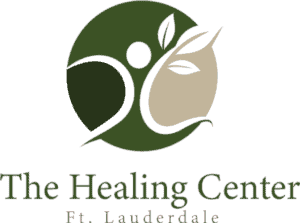Alcohol use disorder, or alcoholism, is a pattern of the use of alcohol that involves issues controlling drinking, being preoccupied with drinking, or continuing to drink despite negative consequences. The disorder also involves having to drink large amounts of alcohol in order to experience effects, or experiencing withdrawal symptoms when drinking is reduced or stopped. Alcohol use disorder varies from mild to severe. The more severe types of the disorder are often referred to as alcoholism.
Alcohol abuse includes using alcohol even when it puts an individual’s health or safety at risk and causes other problems. Binge drinking, a pattern of drinking many drinks in a short period of time, is also considered alcohol use disorder. It is important to understand that binge drinking poses significant risks both in physical health and safety.
If your habits or level of drinking results in repeated negative consequences, causes distress, or interrupts your daily living, then it is possible that you may be struggling with alcoholism. It is important to understand the signs and symptoms of alcoholism in order to know when to get help from an alcohol rehab center. Learn more below about the warning signs of having a drinking problem.
What Is Alcoholism?
Alcoholism, also known as alcohol use disorder, is a chronic condition characterized by a person’s inability to control their consumption of alcohol despite negative consequences. It is a type of addiction that can lead to a variety of physical, mental, and social problems.
People with alcoholism may experience withdrawal symptoms when they try to stop drinking, such as tremors, nausea, anxiety, and seizures. They may also continue to drink despite causing harm to themselves or others, such as driving under the influence, missing work or school, or engaging in risky behavior.
Alcoholism can be caused by a combination of genetic, environmental, and social factors. It can also lead to a range of physical and mental health problems, including liver disease, heart disease, depression, anxiety, and dementia. Treatment for alcoholism may involve a combination of medication, therapy, and support groups.
What Are The Signs And Symptoms Of Alcoholism?
Alcohol use disorder ranges from mild, to moderate, to severe. The level of the disorder will depend on the signs and symptoms of alcoholism that the individual is experiencing.
The signs and symptoms of alcoholism includes:
- Having the inability to regulate the amount of alcohol that one is drinking
- Making unsuccessful attempts at stopping drinking or cutting back one’s drinking
- Spending a significant amount of time drinking or recovering from drinking
- Experiencing cravings or strong urges to drink
- Neglecting daily responsibilities such as family or work in order to drink or due to drinking
- Continuing to consume alcohol despite negative consequences including physical, legal, and relationship issues.
- Giving up enjoyable activities in order to drink
- Drinking in situations when alcohol should not be consumed, such as driving
- Developing a physical tolerance to alcohol. This means that one has to consume larger amounts of alcohol than normal in order to feel effects.
- Developing withdrawal symptoms such as tremors, seizures, stomach upset, and sweating when unable to drink.
When Should Someone Get Help For Drinking?
If you or a loved one is experiencing the signs and symptoms of alcoholism, then it is time to consider getting professional help. There are several different types of treatment for alcohol use disorder. The level of care that one should enter into depends on their history of treatment, how much they are drinking, and what symptoms they are currently experiencing of alcohol use disorder. The levels of care that treat alcoholism are:
- Detox: Detox, or detoxification, is a level of care that helps individuals through the withdrawal process. Clients are provided with 24/7 supervision and their symptoms are managed through the use of medications.
- Residential: Residential care provides clients with round the clock care and supervision. During residential treatment clients reside at the facility.
- Partial Hospitalization Programs: PHP, or partial hospitalization program, offer intense supervision and treatment, but the clients do not live at the facility. Normally, clients will live in supervised homes or at their own residence and then travel to the facility for treatment services.
- Intensive Outpatient Programs: IOP, or intensive outpatient program, is a type of program that provides extended and intense treatments, but is in an outpatient setting.
- Outpatient Programs: outpatient programs provide treatment a couple of days a week for a short period of time to clients that live off campus from the facility.
Alcohol Rehab In Fort Lauderdale, FL
If you or a loved one is experiencing the signs and symptoms of alcoholism, then it is time to seek treatment. At our alcohol rehab in Fort Lauderdale, FL we have years of experience in treating alcoholism. Our goal is to address the underlying issues that caused the addiction in the first place. Furthermore, we teach our clients the coping strategies they need in order to lay the foundation for long term recovery. Don’t wait to get help. Contact our admissions team today in order to learn more about how our programs can help you heal from alcoholism and addiction.






